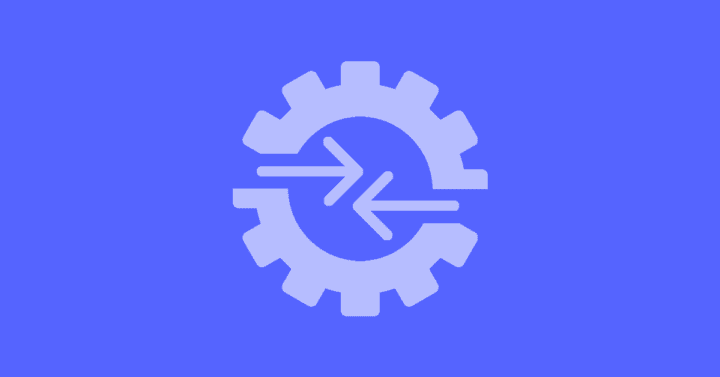How do organizations operate effectively and efficiently when faced with the challenge of managing multiple legacy systems and disconnected processes? The answer is simple: they can’t. To achieve business process unification, it often requires consistency and collaboration from various departments, each working towards a common goal. That’s why so many organizations are ditching fragmented corporate performance management (CPM) systems and replacing them with a single, unified platform that can achieve the goals of stakeholders across the organization.
After facing rapid growth – both organically and through acquisitions – Hoist Finance found themselves in a similar situation. As Europe’s leading debt management company, Hoist Finance needed a better understanding of how the organization is performing, where and what they’re spending on, and alternatives they face moving forward in their processes. To achieve this, they discussed their vision for the future of the company with key leaders and business partners. Then they looked inwards and analyzed the bottlenecks in their current processes and areas for improvement – all this before going out into the market to find the perfect solution. Read on to learn more about their finance transformation journey and how they met their goals.
Europe’s Go-To for Debt Management

Founded in 1994, Hoist Finance has been continuously committed to helping people get back on track with paying off their debts. Hoist Finance shows a best-in-class, professional approach to debt management by setting up trustful relationships while trying to understand the situation that each individual customer is facing. With a strong presence in 13 countries across Europe, Hoist Finance employs over 1,600 people who work collectively to contribute to upholding a sustainable, fair, and stable credit market.
Inheriting Legacy Systems
After experiencing significant growth through acquisition activity, Hoist Finance was facing the high cost of maintaining multiple legacy systems, including licensing, maintenance, and support. It became time-consuming and resource-intensive to complete compliance and reporting processes with transparency. Plus, the burden of inheriting new processes and systems was not ideal for the company’s IT team.
Anticipating continued growth, Hoist Finance wanted to eliminate the risk of manual error when managing multiple data sets in Excel spreadsheets. Add with the imminent end of life of their existing financial consolidation tool, Oracle Hyperion Financial Management, it was clear that the business needed a scalable and strategic CPM software platform that could tackle their complex financial operations.
Putting A Plan In Action
Hoist Finance took careful steps in their evaluation process by understanding their exact needs across the organization before inquiring in product demonstrations. Key stakeholders were brought in early to build a picture of the control model that would give everyone a clear vision from the outset. Together, Hoist Finance declared a clear goal: to be able to measure actuals against planning in real-time.
Collectively, there were additional requirements that could help the Finance organization at large. This included transaction-level drill-down capability, multidimensional views of data, monthly follow-up of actuals against planning, and reduced rework of data.
Implementing an Intelligent Solution
Now, Hoist was ready to go to market. It wasn’t long before OneStream became a strong contender, as a flexible solution offering financial consolidation integrated with planning in one single platform. OneStream unifies the entire financial management lifecycle, resulting in a standardized approach to budgeting, planning, and forecasting that connects seamlessly to reporting and analytics.
Within two months of the start of implementation, Hoist Finance were able to roll out their annual budget on the OneStream platform. They also started retrieving actuals and completed their Q1 report just two months later.
Conquering Complexity with OneStream
Hoist Finance saw an immediate return on their solution investment in OneStream. With a single platform offering one entry point to all their data, there is no longer a gap between planning and actuals. Rather than accessing and analyzing multiple sets of numbers, Hoist Finance now retrieves reports as needed, at whatever level of detail is needed, without sorting through multiple datasets from varying sources.
OneStream’s unique Extensible Dimensionality™ lets any business unit produce consolidations and reporting at different levels of detail, without affecting corporate standards. Now every department is in charge of their own projects and project costs, allowing the Project Management Office to go back to doing the core part of their work instead of chasing invoices. On-demand access to powerful reporting capabilities provides Executive Management the ability to make strategic decisions at their fingertips. Thanks to the OneStream platform, Hoist Finance can now look to implement driver-based planning, rolling forecasts, and other techniques that provide true business agility.
Moving forward, Hoist Finance will continue to improve forecasting and reporting using the OneStream platform, as well as tools available on the OneStream MarketPlace. Guided workflows will speed up data collection and entry, freeing business users to focus on performance over planning. Each phase of development will further extend the value of the platform.
Learn More
When approaching a large finance transformation project, it is important to do due diligence and create a common goal that will benefit more than just the users plugging numbers. Focusing attention on the bottlenecks and processes that are critical to overall project timeline, it provides an easy way to determine the effects of shortening various jobs, manual effort, and duplicate work, to deliver more value back to the business in the long run.
OneStream has proven time and time again to be the preferred alternative to fragmented spreadsheets and legacy systems by not only streamlining process but providing improved visiblity to critical business data. To learn more, check out the Hoist Finance case study article and contact us today if you’re ready to make the move from outdated CPM applications to an intelligent finance platform.
Get Started With a Personal Demo



